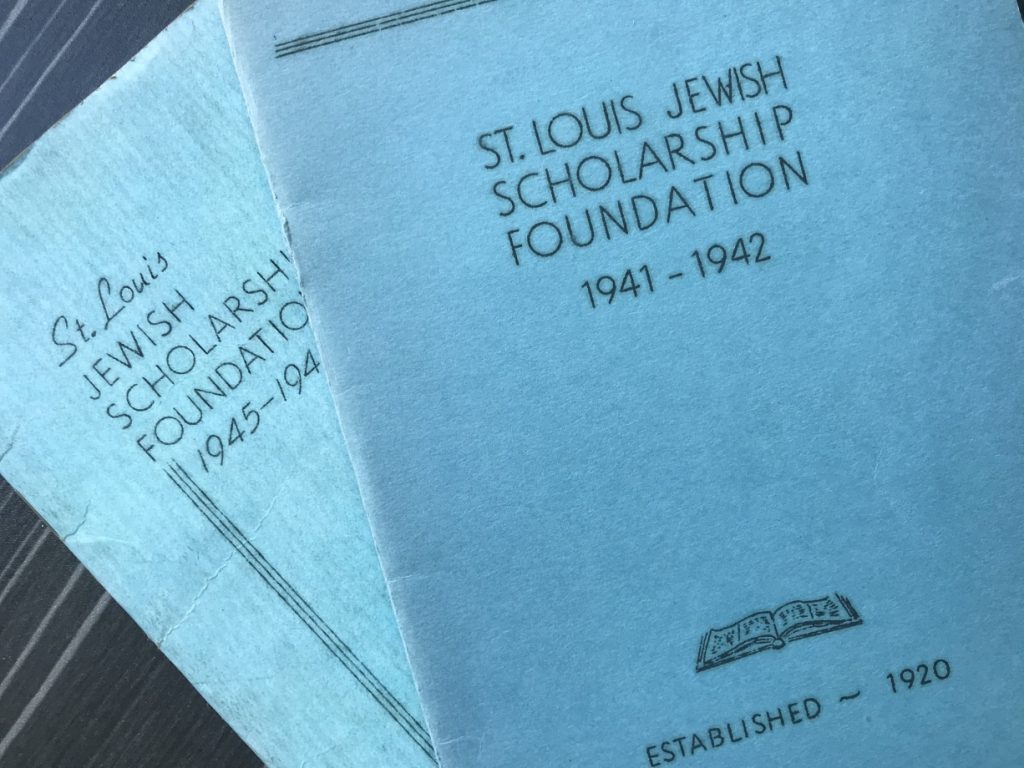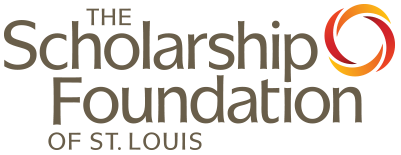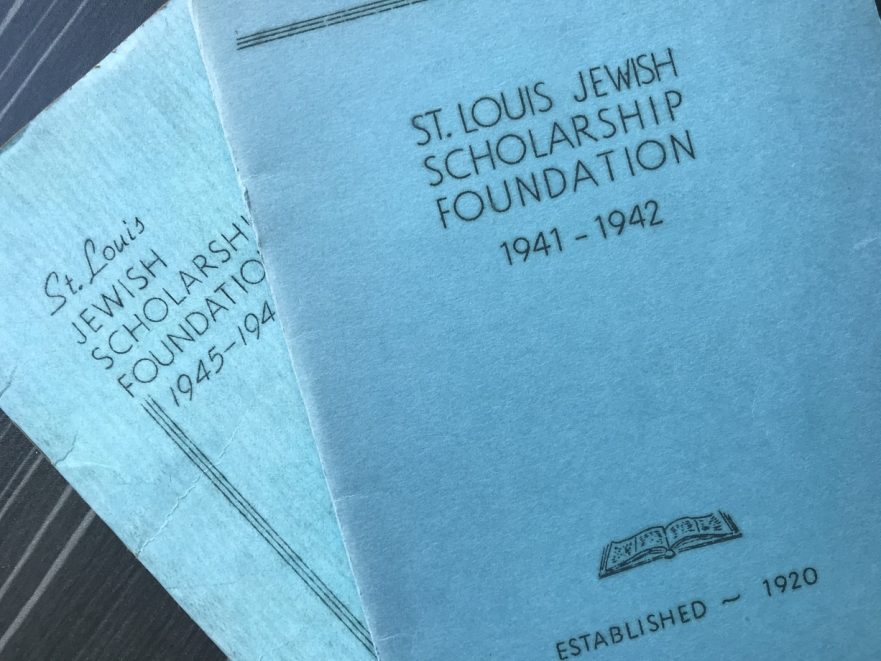
These annual reports of The Scholarship Foundation (then just over 20 years old and called St. Louis Jewish Scholarship Foundation) were published in wartime and span the years of Mendel Rosenberg’s family’s forced removal from Lithuania, the murder of his father and brother, and the period in which he was held in German concentration camps before reuniting with his mother and coming to the United States.
In a terribly troubling time, a student’s application essay reminds us of our roots and of our responsibilities.
Mendel Rosenberg and Rosa* crossed paths while she was in high school. Rosa’s application essay, submitted to The Scholarship Foundation of St. Louis in March, 2020, connects the 92-year old and 18-year old in a beautiful illustration of one of the key themes of our centennial year: immigration (for more see Immigration Timeline).
Please take a moment to read Rosa’s words. There are lessons here for all of us.
– Faith Sandler
¨Wait… They were all born here?
You lucky children have it all so easy, and you don’t even know it!¨
The tone of disbelief and slight envy that rang out from 92-year-old Holocaust survivor Mendel Rosenberg resonated with me. While I found myself nodding along with him, my classmates merely laughed and shrugged off his comment. I was on a field trip to the Saint Louis Holocaust Museum with my French IV Class. We were able to meet and interview Mr.Mendel Rosenberg, a survivor who shared his story. Of the many accomplishments in his life, one of the things he was most proud of was becoming a U.S. citizen. While encouraging us to vote and work hard to become citizens, our teacher reminded him that some of us were still not old enough to vote but that we had all been born in the United States. Hence his comment about how lucky we were. The rest of my class chuckled, but I felt I truly understood.
I was not born in the United States. Unlike all my friends and classmates who were born here, I am unable to share the same benefits. Certain privileges are cut off from me: I cannot vote, I cannot apply for FAFSA, and I cannot travel outside the US. Despite living here since I was two years old, I am marked as different from my peers. These restrictions never felt more suffocating than last year, when I was unable to attend my grandmother’s funeral. Unable to be with her in her last moments, without getting one last hug from her, was heartbreaking. All these thoughts swirled through my mind as I listened to Mr. Rosenberg. A part of me felt his anger toward my classmate’s ignorance of their privileges.
However, amidst all of these thoughts I was struck with a realization. I could keep seeing what my DACA status kept me from doing, I could keep worrying about how some colleges consider me an international student and charge me higher tuition fees. I could let despair fill me when I thought about affording a higher education since DACA students have less financial resources. Or…I could focus on the many privileges granted to me by DACA. Because of it I can drive, I can work, and most importantly, I have a path toward higher education. I realized how blessed and truly thankful I should be for my deferred action student status. My parents have always stressed the importance of education. They made numerous sacrifices so that I could reach the American Dream. For me, this means obtaining my degree and empowering my community. I want to make a difference, to give a voice to the voiceless, to those who are hurting, and to accomplish something for myself. I owe it to my parents, my community, and myself to do so. Regardless of the uncertainty of the future, I know that when I achieve this, what I have learned and studied will be a treasure that no one can take away from me.
While reflecting on my future, I think about what these past four years have taught me. I know that my sophomore year of high school was especially challenging. I was unprepared to take five weighted classes and start working my first job. It was important for me to start working as soon as I could. The reality is that things at home have always been financially tight and if I could help alleviate even a little of that pressure, I would gladly do it. This is how I found myself falling behind in geometry. I wish I could say that I made a speedy recovery, but it took time. I didn’t know how to ask for help in school, and I was not balancing school and work appropriately. I was convinced I could do it by myself if I just kept pushing myself harder. My growing frustration and refusal to ask for help earned me my worst academic year. However, from my mistakes, I learned how to ask for help and how to balance my responsibilities. Rather than continue by taking easier classes, I was determined to better my grades and decided to challenge myself further by continuing to take challenging classes. I also started to take more leadership roles both at work (training new members, leading certain work events) and at school. I am proud of my accomplishments. It’s not always easy to balance work and school, but I am managing.
Recognizing my own privileges and blessings though my DACA status wasn’t something I had always known. I myself had taken it for granted. However, with time I was able to truly understand how blessed I am. With DACA I have a chance at reaching others like me. Attending college puts me on the path for a brighter future, where I can study public health, and work towards helping others. While I know my time there will also have numerous challenges, I am ready to commit the next four years to moving forward and establishing a degree. I am prepared to put forth the effort, eager for a chance at success. I know I may not have the same privileges as my peers but I know that what I do have is a gift that grants me the ability to appreciate deeply, move forward, and dream.
* While Rosa has approved our publication of her essay, we refrain from using her name in order to protect her identity and the identity of her loved ones.


